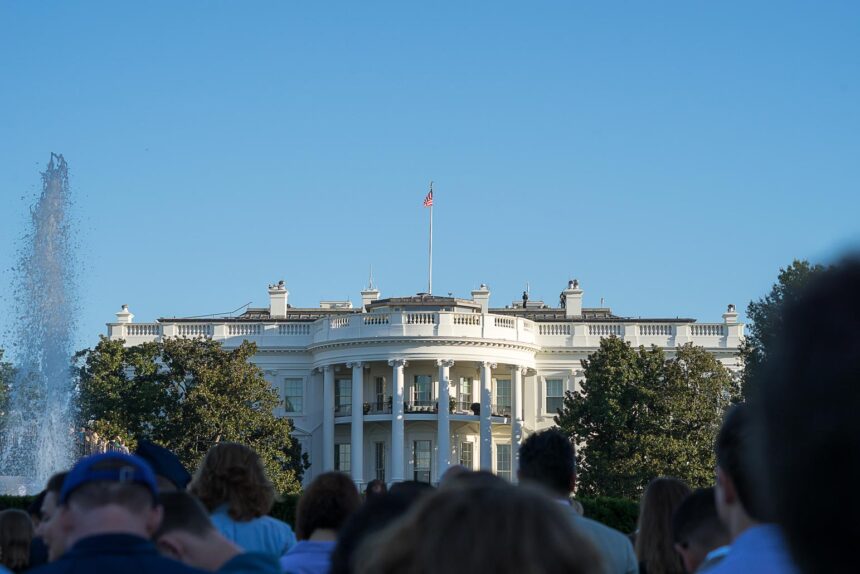In an era defined by rapid urbanization and technological advancement, Bluewater Valley has emerged as a trailblazer in the realm of smart city development. The town’s ambitious Smart City Initiatives aim to leverage cutting-edge technology to enhance the quality of life for its residents, streamline municipal operations, and foster sustainable growth. These initiatives are not merely about implementing new tools but about creating a connected, efficient, and inclusive community where citizens are at the heart of every decision.
From intelligent transportation systems to data-driven governance, Bluewater Valley’s vision is to transform itself into a model for modern urban living. This article delves into the specifics of these initiatives, explaining what they mean for citizens and how they will shape the future of the town. Whether you’re a long-time resident or a newcomer, understanding these programs is essential to fully benefiting from the opportunities they present.
What Defines a Smart City?
Before diving into Bluewater Valley’s specific efforts, it’s important to understand the concept of a smart city . At its core, a smart city uses technology and data to improve urban living. This includes deploying Internet of Things (IoT) devices, artificial intelligence (AI), and advanced analytics to optimize infrastructure, reduce resource consumption, and enhance public services.
Key components of a smart city include smart mobility , energy-efficient buildings , intelligent waste management , and data-driven decision-making . These elements work together to create a seamless, interconnected ecosystem that prioritizes sustainability, efficiency, and citizen well-being. For Bluewater Valley, becoming a smart city means not only adopting these technologies but also ensuring that they align with the unique needs and values of its community.
Smart Mobility: Revolutionizing Transportation
One of the most visible aspects of Bluewater Valley’s Smart City Initiatives is its focus on smart mobility . The town is investing heavily in upgrading its transportation infrastructure to reduce congestion, lower emissions, and improve accessibility. Key projects include the introduction of smart traffic lights , which use real-time data to adjust signal timings based on traffic flow, and the expansion of electric vehicle (EV) charging stations across the town.
Additionally, Bluewater Valley is piloting a shared mobility program that encourages residents to use carpooling, bike-sharing, and ride-hailing services. These initiatives are complemented by the development of pedestrian-friendly pathways and dedicated bike lanes, promoting healthier and more sustainable modes of transportation. For citizens, this means shorter commute times, cleaner air, and greater flexibility in how they travel.
Data-Driven Governance: Empowering Citizens
At the heart of Bluewater Valley’s Smart City Initiatives is a commitment to data-driven governance . By collecting and analyzing data from various sources—such as sensors, mobile apps, and social media—the town aims to make informed decisions that reflect the needs of its residents. This approach ensures that policies and programs are tailored to address real-world challenges effectively.
For example, the town has launched a citizen engagement platform where residents can report issues like potholes, broken streetlights, or littering directly to municipal authorities. The platform uses geolocation and AI to prioritize and assign tasks, ensuring quicker resolutions. Furthermore, regular town hall meetings are supplemented with online surveys and feedback forms, giving citizens multiple avenues to voice their opinions and influence decision-making.
Sustainable Energy Solutions
Sustainability is a cornerstone of Bluewater Valley’s smart city strategy. The town is actively working to transition to renewable energy sources and reduce its carbon footprint. A major initiative involves installing solar panels on public buildings, such as schools and libraries, to generate clean energy. Additionally, Bluewater Valley is partnering with local utility providers to offer incentives for homeowners and businesses to adopt solar power and energy-efficient appliances.
Another key project is the implementation of a smart grid system , which monitors energy usage in real time and adjusts supply accordingly. This not only reduces waste but also lowers electricity costs for residents. For citizens, these efforts translate into a greener environment, reduced energy bills, and a stronger sense of collective responsibility toward combating climate change.
Intelligent Waste Management: Cleaner Streets, Smarter Systems
Waste management is another area where Bluewater Valley is making significant strides through its Smart City Initiatives. Traditional garbage collection methods are being replaced with intelligent waste management systems that use IoT-enabled bins to monitor fill levels and optimize collection routes. This ensures that waste is collected efficiently, reducing operational costs and minimizing environmental impact.
The town is also promoting recycling and composting programs to encourage residents to adopt eco-friendly habits. Educational campaigns and incentives, such as discounts on utility bills for households that participate, have been introduced to drive participation. For citizens, these initiatives mean cleaner streets, fewer overflowing bins, and a greater awareness of sustainable practices.
Enhancing Public Safety Through Technology
Public safety is a top priority for any community, and Bluewater Valley is leveraging technology to create a safer environment for its residents. The town has deployed a network of smart surveillance cameras equipped with facial recognition and motion detection capabilities. These cameras are integrated with emergency response systems, enabling faster reaction times during incidents.
In addition, Bluewater Valley has introduced a community alert app that provides real-time updates on weather conditions, road closures, and potential hazards. Residents can also use the app to report suspicious activities or request assistance. These measures not only enhance security but also foster a sense of trust and collaboration between citizens and law enforcement agencies.
Smart Healthcare: Accessible and Efficient Services
Healthcare is another domain where Bluewater Valley’s Smart City Initiatives are making a tangible difference. The town is working to integrate telemedicine platforms into its healthcare system, allowing residents to consult doctors remotely and access medical records online. This is particularly beneficial for elderly individuals and those living in remote areas who may face challenges accessing traditional healthcare facilities.
Furthermore, wearable health devices and mobile apps are being promoted to help citizens monitor their fitness levels, track chronic conditions, and receive personalized health advice. Partnerships with local clinics and hospitals ensure that these technologies are accessible and affordable for all residents. For citizens, this means improved health outcomes, reduced wait times, and greater convenience in managing their well-being.
Fostering Economic Growth Through Innovation
Bluewater Valley’s Smart City Initiatives are not just about improving daily life; they are also designed to stimulate economic growth . By creating a tech-friendly environment, the town aims to attract startups, entrepreneurs, and investors. A dedicated innovation hub has been established to provide resources, mentorship, and networking opportunities for budding businesses.
Moreover, the town is collaborating with educational institutions to offer training programs in emerging fields like AI, robotics, and cybersecurity. These initiatives prepare the local workforce for high-demand jobs while positioning Bluewater Valley as a hub for technological innovation. For citizens, this translates into increased employment opportunities, higher wages, and a thriving economy.
Challenges and Ethical Considerations
While Bluewater Valley’s Smart City Initiatives hold immense promise, they are not without challenges. Concerns about data privacy and cybersecurity have been raised, as the collection and analysis of vast amounts of personal information could expose residents to risks if not handled properly. To address these concerns, the town has implemented robust encryption protocols and transparent data-sharing policies.
Equity is another critical issue. Ensuring that all residents, regardless of income or background, benefit equally from these initiatives requires deliberate efforts. Programs like subsidized internet access and free digital literacy workshops aim to bridge gaps and prevent the exacerbation of existing inequalities. By addressing these challenges head-on, Bluewater Valley strives to build a smart city that is both innovative and inclusive.
How Citizens Can Get Involved
The success of Bluewater Valley’s Smart City Initiatives depends largely on active citizen participation. Residents are encouraged to engage with the town’s programs by attending informational sessions, providing feedback, and volunteering for pilot projects. For instance, signing up for the smart meter program allows households to monitor their energy consumption and contribute to the town’s sustainability goals.
Citizens can also join neighborhood committees focused on specific initiatives, such as waste reduction or public safety. These groups serve as valuable channels for sharing ideas, identifying pain points, and co-creating solutions. By taking ownership of these efforts, residents play a vital role in shaping the future of their community.
The Future of Bluewater Valley’s Smart City Journey
Looking ahead, Bluewater Valley’s journey toward becoming a fully realized smart city is filled with exciting possibilities. Emerging technologies like 5G networks , blockchain , and augmented reality are expected to further enhance the town’s capabilities. For example, 5G connectivity will enable faster data transfer speeds, supporting applications like autonomous vehicles and remote surgeries.
Collaboration with neighboring towns and regional organizations will also be crucial for scaling successful initiatives and sharing best practices. As Bluewater Valley continues to innovate, its experiences will serve as a blueprint for other communities seeking to embrace the smart city paradigm. Ultimately, the goal is to create a resilient, forward-thinking town where technology empowers people and enhances their quality of life.
“The cities of the future will be defined not by their size, but by their ability to connect and empower their citizens.” – Unknown
Frequently Asked Questions (FAQs)
-
What are Bluewater Valley’s Smart City Initiatives?
These initiatives involve using technology to improve transportation, governance, energy, waste management, and public services for residents. -
How will smart mobility benefit citizens?
Smart mobility reduces traffic congestion, promotes sustainable transport options, and improves accessibility for all residents. -
What is data-driven governance, and why is it important?
Data-driven governance uses real-time data to inform policy decisions, ensuring they are responsive to citizens’ needs. -
How is Bluewater Valley promoting renewable energy?
The town is installing solar panels, offering incentives for energy-efficient upgrades, and implementing a smart grid system. -
What are intelligent waste management systems?
These systems use IoT-enabled bins and optimized routes to make waste collection more efficient and environmentally friendly. -
How does technology enhance public safety?
Smart surveillance cameras, community alert apps, and integrated emergency systems improve response times and deter crime. -
What healthcare innovations are part of the smart city plan?
Telemedicine platforms, wearable devices, and partnerships with clinics enhance accessibility and efficiency in healthcare delivery. -
How do these initiatives support economic growth?
By attracting startups, fostering innovation, and training workers in tech fields, the initiatives create job opportunities and boost the economy. -
What challenges does the town face in implementing these initiatives?
Challenges include ensuring data privacy, addressing cybersecurity risks, and promoting equitable access to benefits. -
How can citizens participate in the smart city initiatives?
Residents can attend events, provide feedback, volunteer, and join neighborhood committees to contribute to the town’s progress.










